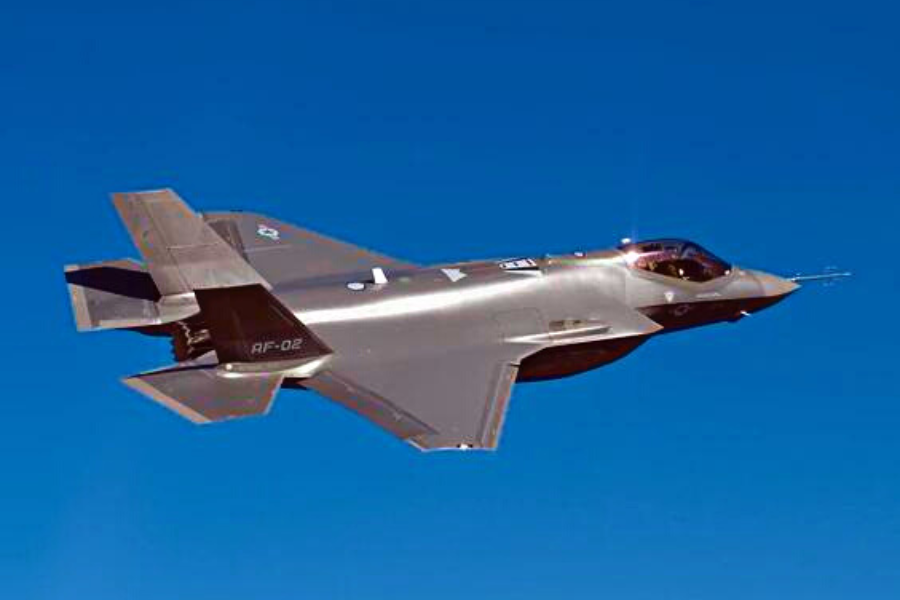This article originally appeared in The National Post
The Canadian government has at long last reversed their previous position on the RCAF’s next generation fighter and reverted to the F-35, the sensible and obvious choice all along.
The purchase is an essential one. The F-35 will replace Canada’s inadequate and aged fleet of F-18s, the government decided earlier this spring. The need is driven home by global instability and uncertainty in the aftermath of the illegal invasion of Ukraine. We must be active partners in NORAD and NATO, prepared to play our part in defending our allies, and conscious of the need to defend our own sovereignty. We would do well to remember that Canada shares an Arctic Ocean border with the increasingly aggressive and expansionist Russia.
There is no question that this represents a major expenditure for Canadian taxpayers. It now behooves the government to ensure that its spending on the F-35, an American aircraft, is accompanied by significant economic benefits for Canada.
In 1980, when the prime minister’s father, Pierre Trudeau, purchased our current CF-18 fleet of fighter jets, he ensured the aircraft would be maintained and sustained in Canada. This decision essentially created the aerospace hub in Montreal that employs tens of thousands of Canadians. The Prime Minister should follow his father’s example.
Indeed, the government needs to make pivotal decisions relating to the sustainment of the F-35s and training of its pilots. It is a question of whether Canada will invest now to ensure we can train pilots early in the program, in Canada, and sustain the aircraft here at home; or, whether Canada will choose to have our pilots trained and our aircraft sustained in the U.S., with a view to repatriating the capability (perhaps) at some future point. The latter, in my view, would be a terrible mistake.
Ideally, Canada should be moving as swiftly as possible to set up a training and maintenance centre so that our allies (including the U.S.) can begin using it even prior to Canada receiving our own aircraft, which could be as late as 2030. With 18 of our allies planning to purchase the F-35 and an estimated three thousand aircraft in the global production line, this could be a very valuable export opportunity for Canada.
We are well-positioned to do it too. There are highly competent Canadian companies that could take sustaining the aircraft, companies like IMP Aerospace and Defence in Halifax and Bristol Aerospace in Winnipeg, among others, are specialized in in-service support and repair and overhaul.
Moreover, flight training and simulation have been identified as one of Canada’s Key Industrial Capabilities (KIC). Montreal-based CAE — a truly spectacular home-grown success story — is a recognized global leader in pilot training and simulation, that is only getting stronger having recently purchased American military tech powerhouse L3 Harris as well as Sabre Aircentre.
Why then, with all this capability at home, would we not be trying to leverage it for Canada’s benefit as part of our participation in the F-35 program?
In most countries, defence procurement is used for industrial development and as a driver of domestic innovation. All our G7 counterparts support their home teams. We seem to have a hard time doing that.
Consider that Canada is currently running a global competition to decide who will train Canada’s military aircrew in the future. When pilot training and simulation is a KIC for Canada and CAE is a world leader at training military pilots and building simulated environments, why would Canada even think about handing the keys of our Future Aircrew Training to a foreign entity? But, as I speak, the federal government has asked for bids from two entities. The first is SkyAlyne, made up of the two Canadian incumbents, CAE and KF Aero, that today provide Canadian military aircrew training. The second is an alliance between Babcock of the United Kingdom and Leonardo of Italy. Why would this even be a competition? And how will CAE maintain its credibility as a global leader in pilot training if its own government passes it over? The most ironic part of the situation is that, if the Babcock-Leonardo teaming does win the training contract, these two companies will peddle the award around the world to try and win contracts away from Canadian industry and workers.
The F-35 procurement and the Future Aircrew Training program are an enormous opportunity to grow innovation and jobs here at home. We stand to lose it if our government does not have the vision to manage defence procurement to this country’s benefit.
Now that we are finally fully committed to purchase the F-35, Canada needs to notify the U.S. that we will have our own sustainment centre and run our own training, protecting our sovereignty and helping to bring Canada’s defence aerospace sector into the F-35 supply chain.
We have a long and tragic history of lost benefits and, frankly, ineptitude in aviation procurement, from the Avro Arrow to the Sea Kings to the C-series. Let’s get the F-35 contract and Future Aircrew Training right for the sake of our country, our Air Force and future generations.
Peter MacKay served as Canada’s defence minister from 2007-2013. He is currently a lawyer for consulting firm Deloitte. Deloitte has done past accounting audits for CAE.




